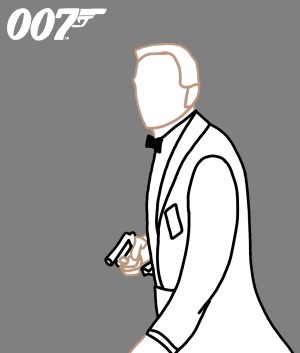At least we’ll always have ‘The Sopranos’
Mafia drama ‘The Many Saints of Newark’ fails to make Tony’s origin story believable, larger than life
The young Tony Soprano (Michael Gandolfini) drifts in and out of the periphery of the narrative, lingering on the edge of a story that should inarguably belong to him.
Warner Bros. Pictures YouTube channel
December 5, 2021
It’s 1967 in a racially divided Newark, N.J., during the Summer of Love, and Tony Soprano is an impressionable and deceptive young teenager. Tony Soprano’s origin story film wastes no time in submerging us in its frigid world, as we are immediately introduced to its colorful cast of characters, all of whom find themselves on the lower rungs of the Italian DiMeo crime family.
There’s Alessandro Nivola’s Dickie Moltisanti; Ray Liotta’s virulent “Hollywood Dick” Moltisanti; Tony’s parents, Vera Farmiga’s neurotic Livia and Jon Bernthal’s tyrannical Johnny Boy; and Corey Stoll’s cutthroat Corrado “Junior” Soprano.
One of the many disparate narrative threads in the film is an attempt at examining both sides of the racial divide in Newark with empathy and candor, which is mostly accomplished in the form of Leslie Odom Jr.’s Harold McBrayer, an ambitious Black associate who runs a number racket for Dickie.
After a Black taxi driver is assaulted by white officers, Harold becomes a willing participant in the resulting riots, though these riots merely come to function as a plot device for a body disposal in the aftermath of a murder that takes place.
Despite the fact that Odom Jr.’s bristling, slick performance in the role gives the film some much-needed narrative heft, Dickie is the character who ultimately functions as the film’s center. Mainly, the bulk of his plotline involves the love triangle he finds himself in with his father and his father’s new Italian bride, Guiseppina (Michela De Rossi), which leads to a conclusion that feels simultaneously surprising and inevitable.
Alessandro Nivola’s performance as Dickie is impressive. He manages to make Dickie smarmy, conflicted, hotheaded and soulful all at once, being able to portray shades of humanity and raw pain in Dickie underneath the virile ferocity his character exudes. While multifaceted, Nivola’s performance is just not emotionally stirring or strong enough to justify having him be the movie’s principal character, especially since the film is supposed to serve as an origin story for Tony Soprano.
In the role of a young Tony, there’s none other than Michael Gandolfini, the son of late actor James Gandolfini who played Tony in the original TV show. James Gandolfini’s performance as Tony Soprano was a masterclass in acting and depth. Over the course of the show’s six seasons, he pricked the character of Tony until his demise. Every wound, sign of humanity, quirk and facet of the character was exposed.
In the film, there are flashes of some of the nuance that James Gandolfini infused Tony Soprano with in Michael’s performance, seen in his striking eyes and a gait reminiscent of his late father’s. His inability to establish a round character lies not in his acting chops, but in his character’s role in the film, as the young Tony drifts in and out of the periphery of the narrative, lingering on the edge of a story that should inarguably belong to him.
When it came to its own visual choices, The Sopranos had a knack for juxtaposing the darkness and grim realities of life with light and normality. The Many Saints of Newark borrows heavily from its predecessor in this regard, consistently giving Sopranos fans subtle pangs of nostalgia for what came before.
For the most part, The Many Saints of Newark is a compelling-enough glimpse into the inner workings of a mafia family, but it ultimately fails to deliver on its basic premise: giving the enigmatic Tony Soprano a believable origin story.
Instead, viewers were given a movie where Tony’s rebellious teenage antics and perpetual angst are supposed to serve as justification enough for his eventual turn to a life of crime. If nothing else, at least we’ll always have The Sopranos.





